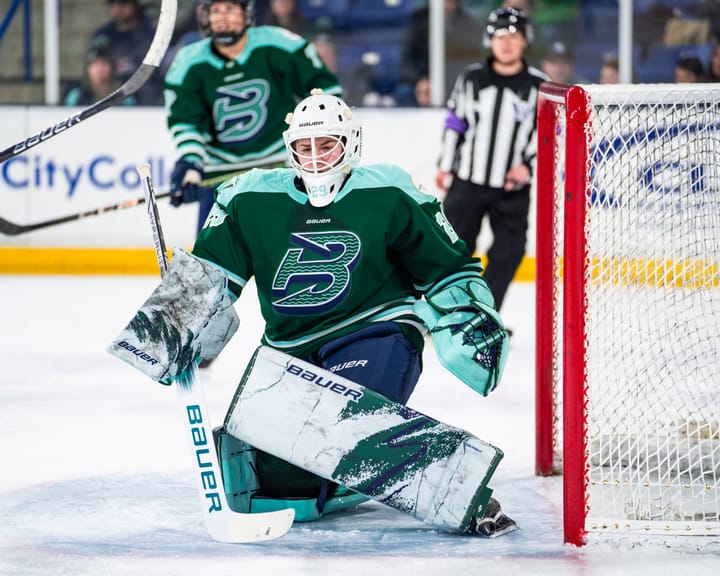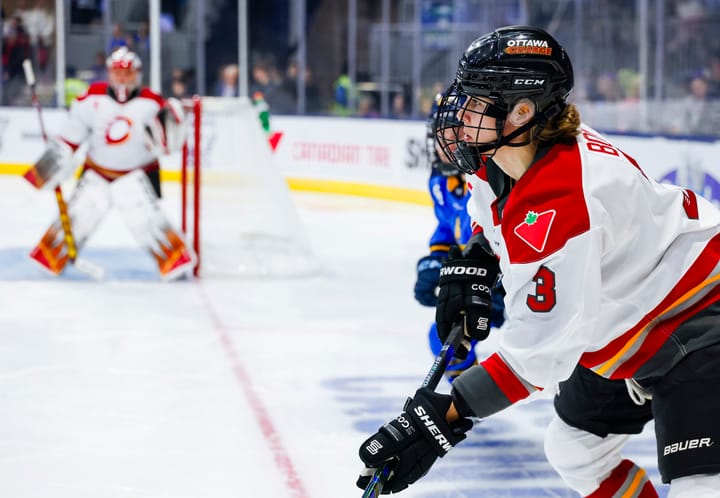Wicked Angles: The elephant in the room has begun to trumpet
As much as fans may want this new league to succeed, it's difficult to overlook the way the PWHPA's acquisition of the PHF came about.

This column solely represents the opinion of the author, not of The Ice Garden in general.
There've been a lot of words from all angles when it comes to the recent acquisition of the PHF by the ownership group attempting to create a league for the PWHPA, that being the Mark Walter Group and Billie Jean King Enterprises. Some are painting this as a net positive; some are pointing out the loss of eight years of history that comes with rebranding teams and not signing certain players. Today, I'd like to focus on the words of one Miles Arnone, a member of the former PHF's board of governors, who spoke with THN's Ian Kennedy in a piece that went live Monday afternoon.
Now, some of this needs to be taken with a shaker's worth of salt, for sure — Arnone had a stake in the Boston Pride, and with that stake gone, I'm sure there are some hard feelings still in the way after three weeks (no matter what he says). Also, while outwardly the rift between the PHF and the PWHPA has been relatively tame on the established league's part, I don't doubt each side of the women's hockey chasm has had less-than-charitable things to say about the other at times regarding any kind of developments or conversations surrounding a merger. That's to be expected, what with the level of tension that's been there pretty much from the word "go."
That doesn't change the feeling I've had throughout this process, which is that the PWHPA has gotten exactly what it wanted out of the deal with the PHF — that being the end of any progress that league was about to make beyond the PW's capabilities. Arnone says as much throughout his interview with Kennedy, and his descriptions of interactions with Stan Kasten of the Mark Walter Group and his impressions of Billie Jean King are certainly illuminating. King, in Arnone's words, is "dogmatic" in her insistence that a sustainable women's hockey league can't be possible without intervention (some might call it "help") from the men's NHL; Kasten, he says, is worried about the optics of the brands he nevertheless partially bought into — particularly the Boston Pride branding, which he apparently didn't like the implications of (because god forbid the gays have one nice thing in a morass of absolute dogshit accumulated over the past few years, am I right?).
This insight paints a picture of an ownership coalition that seems to want to step backwards from even the meager progress that the PHF achieved, at least when it comes to diversity and inclusion. Mind you, that was a progress achieved mostly due to the players who chose to be open and engage with the fanbase, especially its LGBTQ+ contingent — but it was something. To be afraid of the connotations of a name like "Boston Pride" implies a level of cowardice on par with that of the NHL that the PW seems so desperate to court. Then again, I don't know what we expected from the president of a baseball team that briefly uninvited a charity group geared toward the queer community from their Pride night back in June. After all, lack of conviction and backbone aren't exclusive to men's hockey.
If true, the revelations Arnone provides in his interview present a pretty clearly implied answer to any questions I or anyone else had with regard to social progress — a goal the PHF wasn't at the forefront of, at all, but at least made an effort toward. To refuse to work with the PHF but be open to Saudi Arabia, a country with a notably shitty human rights record, proves the money and the power are all they're after (not to imply North America is any better in that respect, let's be real). To posit a movement as being for players' rights and then agree to a collective bargaining agreement that can at its kindest be called "conservative," not to mention courting the favor of a professional league with a pockmarked labor history, is sheer hypocrisy. And it's frustrating to feel like you have to dance around that reality.
Multiple things can be true at once. It can be true that, ultimately, the new league has to work for pro women's hockey in North America to continue being a thing. It also can be true that this league will probably feature some of the best players to ever step on the ice in this current era of the sport.
It can also be true that the ownership group that now owns the property of the PHF doesn't have the players' best interest at heart. If it did, it would keep in place the personnel who made the PHF successful, keep the cities, keep the branding and partnerships, and not overload its plate with less than five months before go-time in January 2024. It would make this transition as easy as possible for as many people as possible, not blow everything up and start over just because they own it and they can. It wouldn't already have done so much to alienate a loyal fanbase, dedicated staff, longtime media, and former PHF players who just had the rug pulled out from under them. As much as I want this to succeed, I really can't overlook the way it came about — and I honestly would rather address that than ignore it.
After four years of posturing and dreaming, the PWHPA finally has a league made of the PHF's remnants and, presumably, is looking ahead to having the NHL fill in the gaps. Meanwhile, the elephant in the room has only just begun to air its grievances.





Comments ()